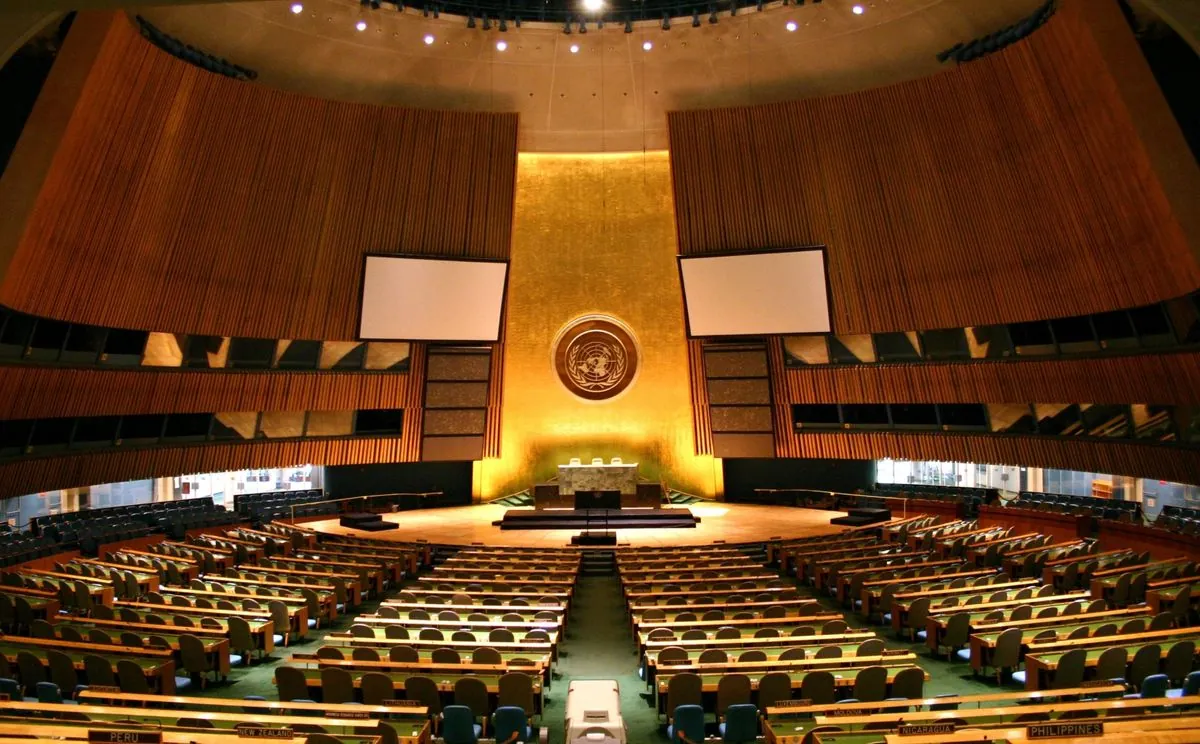The United Nations General Assembly (UNGA) annual gathering of world leaders is a pivotal event in global diplomacy. This high-level meeting brings together representatives from all 193 UN member states, creating a unique platform for international dialogue and cooperation.
UNGA, often pronounced "UN'-gah," is the centerpiece of the UN's yearly calendar. While New Yorkers might associate it with traffic disruptions, the event's significance extends far beyond local inconveniences. The General Assembly itself is a year-round body, but this particular week-long session garners the most attention.
At the heart of UNGA is the General Debate, where world leaders present their views on global issues. Although there's a suggested theme, speakers often use this opportunity to address a wide range of topics, from climate change to regional conflicts.
"We need to turbocharge the SDGs"
The UN's structure includes several key components:
- The Security Council, with its 15 members (5 permanent and 10 elected)
- The P5: China, France, Russia, the UK, and the USA
- The E10: Ten non-permanent members elected for two-year terms
The UN employs numerous acronyms and terms that are crucial for understanding global affairs:
- SDGs: Sustainable Development Goals, a set of 17 objectives adopted in 2015
- SIDS: Small Island Developing States, facing unique challenges like rising sea levels
- BRICS: An economic coalition that has expanded to include new members in 2024
- LDCs: Least Developed Countries, facing severe economic challenges
The UN's history is rich with significant milestones. Founded in 1945 with 51 original signatories, it has grown to include 193 member states. The organization has been awarded the Nobel Peace Prize 12 times, recognizing its efforts in promoting global peace and cooperation.
Climate change remains a critical focus, with the Paris Agreement setting a goal to limit global warming to 1.5 degrees Celsius above pre-industrial levels. As of 2024, the earth has already warmed by 1.1 degrees, emphasizing the urgency of climate action.
The UN's influence extends beyond diplomacy. Its specialized agencies, such as WHO, UNESCO, and UNICEF, play crucial roles in various aspects of international development and humanitarian aid. The organization's annual budget for 2024 stands at approximately $3.4 billion, supporting its diverse operations worldwide.
As the world faces complex challenges, from regional conflicts to global pandemics, the UN's role as a forum for multilateral cooperation remains vital. Understanding its structure, goals, and terminology is essential for anyone seeking to comprehend the intricacies of international relations in the 21st century.
